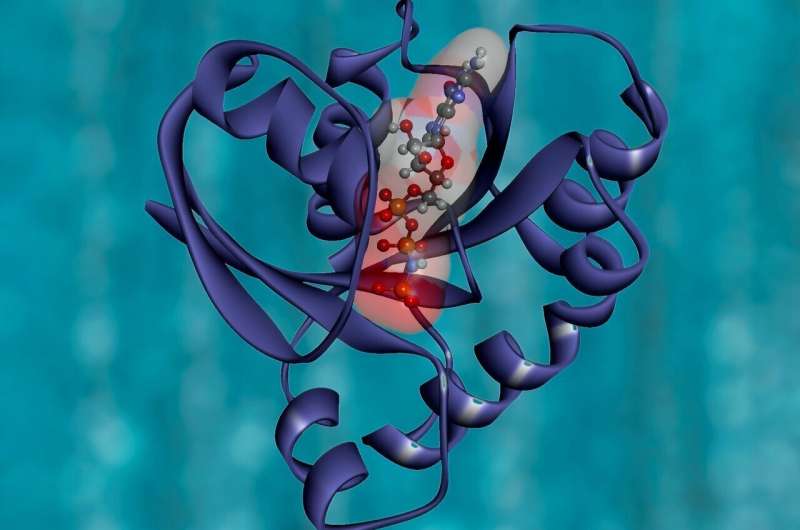This article has been reviewed according to Science X's editorial process and policies. Editors have highlighted the following attributes while ensuring the content's credibility:
fact-checked
peer-reviewed publication
trusted source
proofread
Autoimmune diseases: Protein discovered as potential new target for therapies

Autoimmune diseases are complex illnesses, the causes of which are diverse and have not yet been fully explained. A research team at MedUni Vienna has now discovered an immunoregulatory protein that could be linked to the development of autoimmune diseases such as rheumatoid arthritis. The identified component of the immune system is called "Rinl," which could provide a new target for the development of immunomodulatory therapies. The study results were recently published in the Journal of Experimental Medicine.
In the course of their research, the team led by Nicole and Ruth Herbst (Centre for Pathophysiology, Infectiology and Immunology at MedUni Vienna) found particularly high levels of Rinl in special immune cells, the T cells. Rinl, like its siblings Rin 1-3, is a member of the Ras interaction protein (Rin) family and is a comparatively young object of research.
While a deficiency or excess of Rin 1-3 proteins has already been linked in recent years in international studies, for example, to cancer, Alzheimer's disease or the spinal disease scoliosis, Rinl has so far been little researched.
Mechanism in the immune system deciphered
The function of this protein in the immune system has been clarified by the scientific team as part of the current study. "By analyzing mouse models and cultures of human T cells, we have discovered that Rinl controls the development of follicular T helper cells, the Tfh," say study leaders Nicole Boucheron and Ruth Herbst.
Tfh are a subset of T cells and support the maturation of other essential components of the immune system, the B cells. Mature B cells, in turn, produce highly effective antibodies and thus play a major role in the body's immune response: in vaccinations, a large amount of such antibodies is desired, but in autoimmune diseases such as rheumatoid arthritis (RA), they turn against the body's own body and damage it.
"Our study reveals the previously unknown mechanism of how Rinl controls the development of Tfh cells in various immunological reactions, such as during a viral infection or during a vaccination," explains first author Lisa Sandner.
As the researchers' investigations of patient data from public databases also showed, there is a low concentration of Rinl proteins in the T cells of rheumatoid arthritis (RA). Based on these results, the protein may represent a new target for the development of immunomodulatory therapies for RA: "Pharmacotherapies that control Rinl and Rinl-dependent signaling pathways could help alleviate the symptoms of RA," say Nicole Boucheron.
Conversely, interventions that inhibit Rinl could be used in immunodeficiency to help the body fight disease. Further research should confirm the results and show whether the Rinl protein can also open up new therapy options for other diseases that are associated with a disturbed immune response, particularly in the regulation of Tfh cells.
More information: Lisa Sandner et al, The guanine nucleotide exchange factor Rin-like controls Tfh cell differentiation via CD28 signaling, Journal of Experimental Medicine (2023). DOI: 10.1084/jem.20221466



















